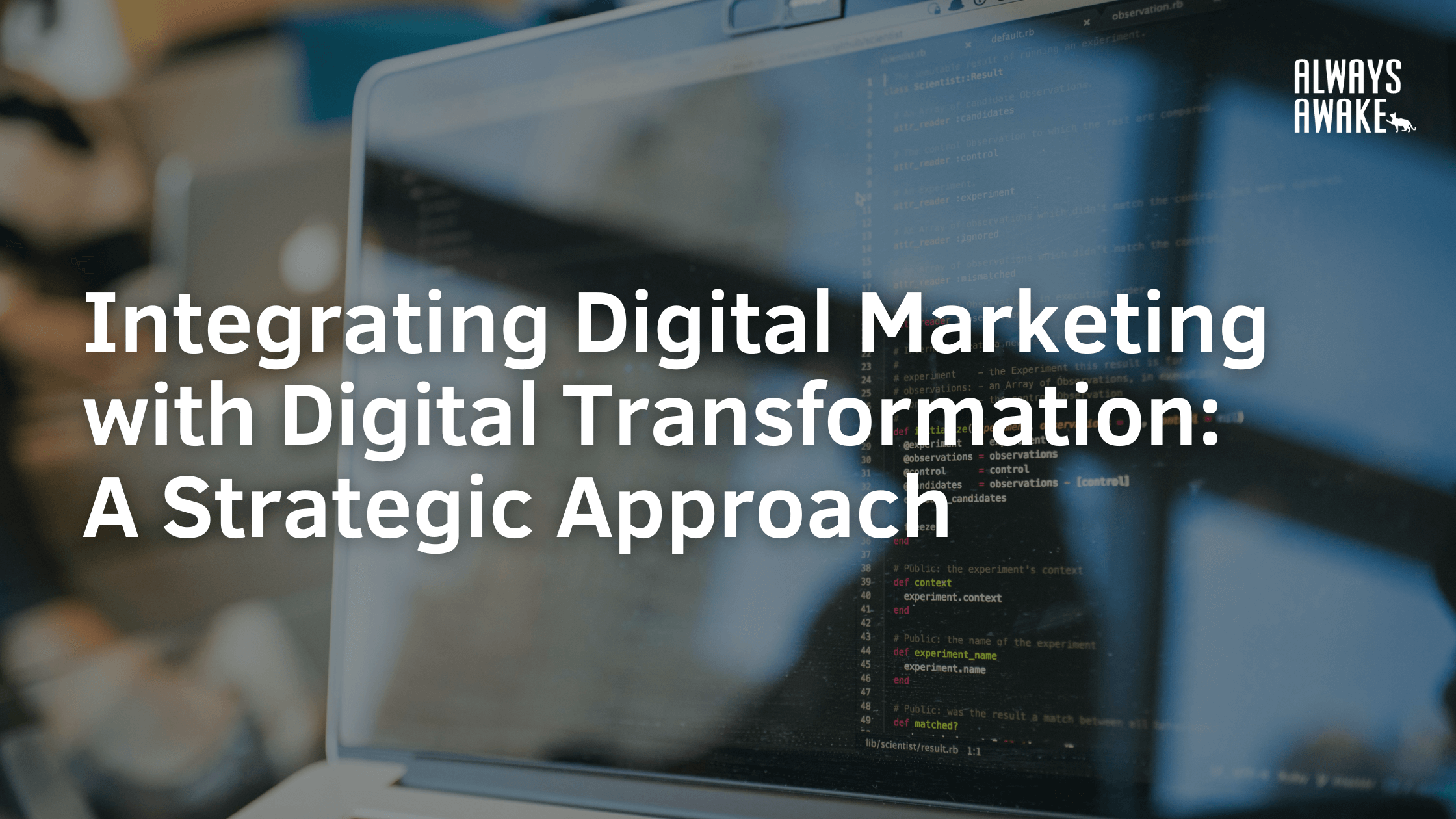
Integrating Digital Marketing with Digital Transformation: A Strategic Approach
In the era of rapid technological advancement and evolving consumer behavior, digital transformation has become imperative for businesses to stay competitive. One of the key pillars of digital transformation is digital marketing, which plays a pivotal role in reaching and engaging customers in the digital landscape. Integrating digital marketing and digital transformation is more than just implementing new technology; it is also about strategically exploiting them to generate business growth and innovation. In this post, we’ll look at how firms can successfully integrate digital marketing into their overall digital transformation projects.
Know and Understand Digital Marketing and Transformation
The process of radically changing business operations, strategy, and consumer relationships through the use of digital technologies is known as digital transformation. It involves embracing innovation, optimizing processes, and adapting to the digital-first mindset to meet the evolving needs and expectations of customers.
Conversely, digital marketing refers to a range of online strategies and platforms that are meant to increase consumer engagement, brand recognition, and product or service promotion. It covers tactics like email marketing, social media marketing, content marketing, and search engine optimization (SEO), search engine optimization (SEM), among others.
Digital Marketing's Place in the Digital Transformation
- Customer-Centric Approach: Through digital marketing, companies can learn important details about the preferences, behavior, and feedback of their customers.
- Data-driven approach: Leverage customer data to personalize marketing messages and tailor campaigns for better engagement.
- Seamless customer journey: Ensure a consistent and positive experience across all touchpoints (website, social media, email, etc.)
- Enhanced Reach and Visibility: Businesses may raise brand awareness and reach a wider audience by utilizing digital marketing platforms like email, social media, and search engines. In the digital sphere, this increased reach is essential for drawing in new clients and building brand recognition.
- Agile and Data-Driven Strategies: Using analytics and performance metrics, digital marketing enables real-time campaign monitoring and optimization. Businesses may continuously enhance their marketing strategies and adjust to shifting market conditions by implementing agile approaches and data-driven decision-making processes.
- Integration of Omnichannel Marketing: Creating smooth experiences across a variety of online and offline touchpoints is a key component of digital transformation. Digital marketing facilitates the integration of omnichannel marketing strategies, ensuring consistency and coherence in brand messaging and customer interactions across various channels and devices.
Strategies for Integrating Digital Marketing with Digital Transformation
- Aligning Objectives and Goals: Coordinate marketing objectives with the overarching digital transformation plan to align company objectives. Ensure that your digital marketing strategies complement the overarching objectives and priorities of the company
- Investing in Technology and Tools: Leverage cutting-edge digital marketing technologies and tools that enable automation, personalization, and data-driven decision-making.
- Marketing automation: Streamline repetitive tasks and free up resources for strategic initiatives.
- Content Management Systems (CMS): Make managing and creating information easier for quicker updates.
- Marketing analytics tools: Track campaign performance and gain insights for optimization.
- Empowering Cross-Functional Collaboration: Foster collaboration and communication between marketing teams and other departments involved in digital transformation efforts, such as IT, sales, customer service, and product development. Encourage cross-functional teamwork to ensure alignment and synergy in achieving shared objectives.
- Embracing Innovation and Experimentation: Promote an innovative and experimental culture inside the company. To stay ahead of the curve and promote ongoing development in digital marketing initiatives, encourage marketing teams to test out new tactics, platforms, and technology
- Measuring and Analyzing Performance: To gauge the success of digital marketing campaigns and efforts, define metrics and key performance indicators (KPIs). Gain actionable insights and optimize marketing campaigns based on real-time feedback and outcomes by utilizing data analytics and performance tracking tools.
- Adapting to Shifting Trends and Technology: Stay informed on the most recent advancements in digital marketing as well as the trends and technology of digital transformation. Keep an eye out for changes in the market, customer trends, and competitive environments to spot chances for innovation and adaptation
Bonus Tips:
- Train your staff: Give your marketing staff the tools they need to work in a tech-driven, data-driven environment.
- Embrace experimentation: Test new technologies and strategies, analyze results, and adapt for better outcomes.
- Innovation culture: Promote the discovery of novel concepts and the effective use of digital transformation in marketing.
Conclusion
In order to prosper in the current digital economy, organizations must integrate digital marketing with digital transformation. By adopting a customer-centric approach, leveraging technology and data-driven strategies, and fostering collaboration and innovation, organizations can effectively harness the power of digital marketing to drive business growth, enhance customer experiences, and achieve their digital transformation objectives. Embrace the transformative potential of digital marketing as a catalyst for driving meaningful change and innovation within your organization.

